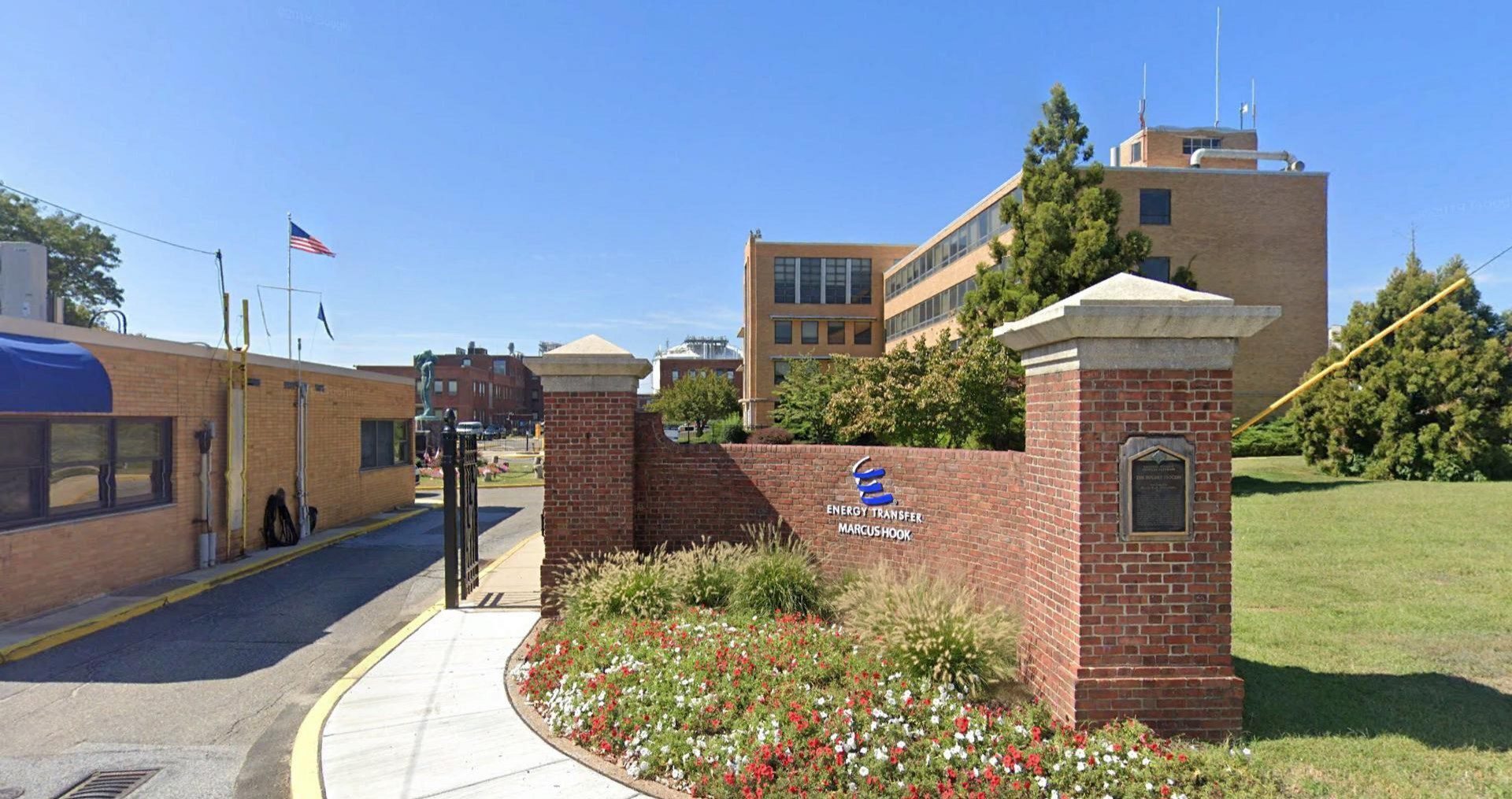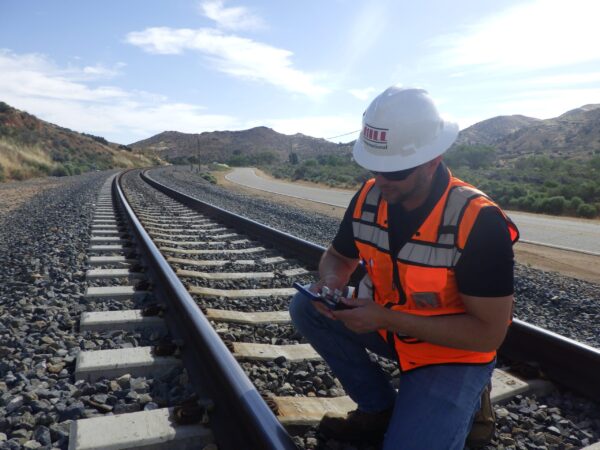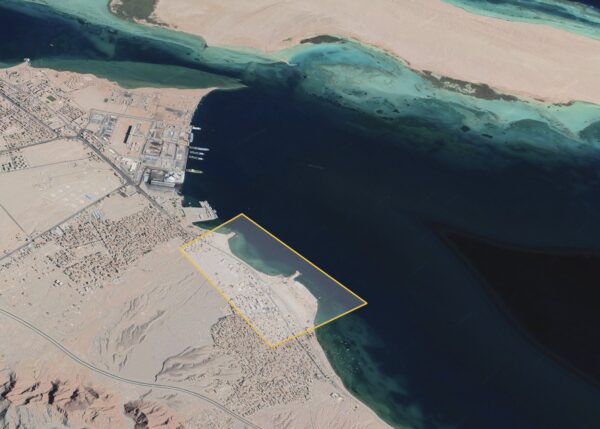
January 23, 2025 | Articles
Plotting a Roadmap to Success on the Torres de Colón Renovation

Energy Transfer (ET), parent company of Sunoco Pipeline LP, has embarked on a $200 million expansion of the 82-acre Marcus Hook Industrial Complex, located just south of Philadelphia, to export Pennsylvania’s rich propane and butane reserves more efficiently, safely, and sustainably to customers in Europe and elsewhere. Today, after several years of upgrades and modernizations, work is well underway to transform the former oil refinery into a world-leading hub transporting liquified natural gas (LNG) over land and sea. Hill Senior Program Controls Manager Lesley Boone leads Hill’s controls efforts for ET at Marcus Hook, applying her expertise in procurement, cost engineering, and auditing to verify work is executed as planned and that ET receives the accurate and timely information they need to realize their goals for the complex.
Originally built as an oil refinery in 1902, today, Marcus Hook can receive and deliver LNG via marine vessel, pipeline, truck, and rail. The facility also functions as an off-take outlet for ET’s ME-1 pipeline and provides similar services for the company’s ME-2 and ME-2X pipelines. The expansion project included construction of several new processing units; two, 600,000-barrel cryogenic ethane storage tanks and appurtenances; a new firewater fixed monitor loop and deluge system; metering skids; and pipe runs for connection to other units, utilities, and loading docks. Ultimately, the complex will receive LNG from Ohio and West Virginia, as well as Pennsylvania, once all pipelines are connected and operational.
“This is really a reimagining,” says Boone of the work at the complex. “In the years I’ve been here, we’ve had thousands of workers on-site working on multiple projects across the entire refinery. We built the first ethane loading truck rack for regional deliveries, for example, as well as the new processing units, including an ethane/propane splitter and ethane and propane chilling and refrigerated storage.
“Before the shale boom that sparked all this work, Marcus Hook was just idling, and Sunoco had shut it all down in 2011. But all that has changed now. Even with demand slowed by COVID-19, work here is still moving along.” To date, ET has invested more than $5 billion in building the pipelines feeding Marcus Hook, as well as upgrading storage and processing facilities in the complex itself.
Boone explains her role as Senior Program Controls Manager is to serve as ET’s advocate and partner. “What I’m doing here is primarily cost control support, as well as coordinating with the scheduling teams to help keep the projects under control,” she says. She adds her role balances two sides: she is an in-house expert for ET dedicated to the work at Marcus Hook, and, at the same time she’s a Hill controls expert with the skillset to lead teams and help manage work across multiple sectors.
“I’ve worked for biotech, pharma, and industrial clients,” says Boone. “And I know organizations today often bring in hired guns with specific expertise to manage their capital programs and projects. I understand the ‘staff aug’ dynamic, as does Hill, and Hill has the approach to provide clients like ET with teams that know how to deliver these large assignments right out of the gate.”
She adds that a key critical component to staff augmentation assignments like ET’s Marcus Hook work is finding the right cultural fit. “Marcus Hook has its own culture and its own way of doing things. This is an industrial complex with operations going back more than 100 years, all the way up to its temporary shutdown in 2011. It has its own character and history and learning that history is important to provide the actionable, realistic data ET needs to track progress and make smart choices on where to allocate resources and attention.”
For ET, Boone has developed customized systems to support the projects at Marcus Hook, including the development of an Excel workbook incorporating a one-time only data entry methodology to verify accurate transference of information across various spreadsheets and reports. Boone has now worked at Marcus Hook continuously since 2015, overseeing the bulk of the complex’s transformation first-hand. “Marcus Hook receives about 200,000 barrels of LNG daily,” she says. “I’m told that’s more than the complex ever saw when it was an oil refinery. That’s certainly exciting, to witness that work and see it all come to fruition.”
Share

January 23, 2025 | Articles
Plotting a Roadmap to Success on the Torres de Colón Renovation

December 12, 2024 | Articles
Progressive Design-Build for Rail and Transit Projects: Room to Run

December 9, 2024 | Articles
Unlocking Growth: Maximizing the Benefits of the SBA’s Mentor-Protégé Program

December 8, 2024 | Articles
Mediterranean Luxury a Century in the Making: Four Seasons Resort Mallorca at Formentor

November 23, 2024 | Articles

November 15, 2024 | Articles
The Ruiz Picasso 11: Delivering Sustainability in the Heart of Madrid

November 13, 2024 | Articles
Hill International Takes Riyadh Metro Project to Finish Line

November 11, 2024 | Articles

November 3, 2024 | Articles
Negotiating Success: Hill Contract Administrator Christine Prettyman